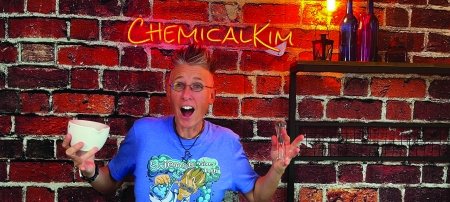Dow Chemical Sponsors Great Lakes Bay Science & Engineering Festival

The Dow Chemical Company has taken the lead as naming sponsor of the Dow Chemical Company Great Lakes Bay Science & Engineering Festival at Delta College Oct. 4-5. The festival, hosted by Michigan Technological University and Delta College on the Delta College campus, will feature the Michigan Tech Mind Trekkers and the American Chemical Society Midland Section’s SciFest, performing their hands-on science shows.
The free two-day festival is designed to get children, adolescents and their families excited about science and engineering by engaging them in hands-on activities. Its ultimate goal is to attract more bright students into STEM (science, technology, engineering and mathematics) studies and careers.
On Friday, Oct. 4, the festival will host 4,000 middle school students from Midland, Bay City and Saginaw area schools. On Saturday, Oct. 5, it will be open to the public.
"STEM literacy has a profound and growing impact on our day-to-day lives. It helps us make critical decisions, and it reveals the power of the world we inhabit," said Rob Vallentine, director, North America geographic site public affairs, and global director, STEM education at The Dow Chemical Company. "We believe engaging, hands-on learning opportunities are critical for building, supporting and growing the STEM pipeline. The Science and Engineering Festival is a great example of this model."
Other major sponsors so far include Denso International America Inc., Nexteer Automotive, CMS Energy and the Dow Corning Foundation Donor Advised Funds awarded by the Midland Area Community Foundation, Saginaw Community Foundation and Bay Area Community Foundation.
Michigan Tech Mind Trekkers undergraduate and graduate student volunteers conduct high-energy, sometimes startling demonstrations and activities involving the young people who come to their performances. Science and engineering are anything but dull when you can make—and eat—liquid nitrogen ice cream, shoot a ping pong ball through a soda can using nothing more powerful than air or walk on (and sink in) a sticky liquid-solid called ooblek.
Mind Trekkers has brought the “Wow!” of STEM to hundreds of thousands of young people all over the country since the traveling science show was established in 2010. Partnering with the USA Science & Engineering Festival, Mind Trekkers will take its performance to the nation’s capital in April 2014.
ACS Midland’s SciFest also brings hands-on science to curious people of all ages, with exhibits, activities and performances. The Midland Local Section of ACS won a ChemLuminary award from the national ACS for SciFest in 2011.
Michigan Tech and Delta College are inviting other organizations and corporations interested in science, engineering and STEM education to participate in the Great Lakes Bay Science & Engineering Festival. Email Steve Patchin at Michigan Tech for more information at shpatchi@mtu.edu.
Often referred to as one of America’s leading community colleges, Delta College is known for academic excellence, technological innovation, community leadership and graduates who make a difference. Of its 52,000 graduates, 87 percent live in Michigan, and more than 63 percent reside in Delta’s three-county service area. Over 30 percent of the region’s high school graduates attend Delta College, and more than 28 percent of all students are enrolled in health- or health-science related programs.
Michigan Technological University is an R1 public research university founded in 1885 in Houghton, and is home to nearly 7,500 students from more than 60 countries around the world. Consistently ranked among the best universities in the country for return on investment, Michigan's flagship technological university offers more than 185 undergraduate and graduate degree programs in science and technology, engineering, computing, forestry, business, health professions, humanities, mathematics, social sciences, and the arts. The rural campus is situated just miles from Lake Superior in Michigan's Upper Peninsula, offering year-round opportunities for outdoor adventure.




Comments